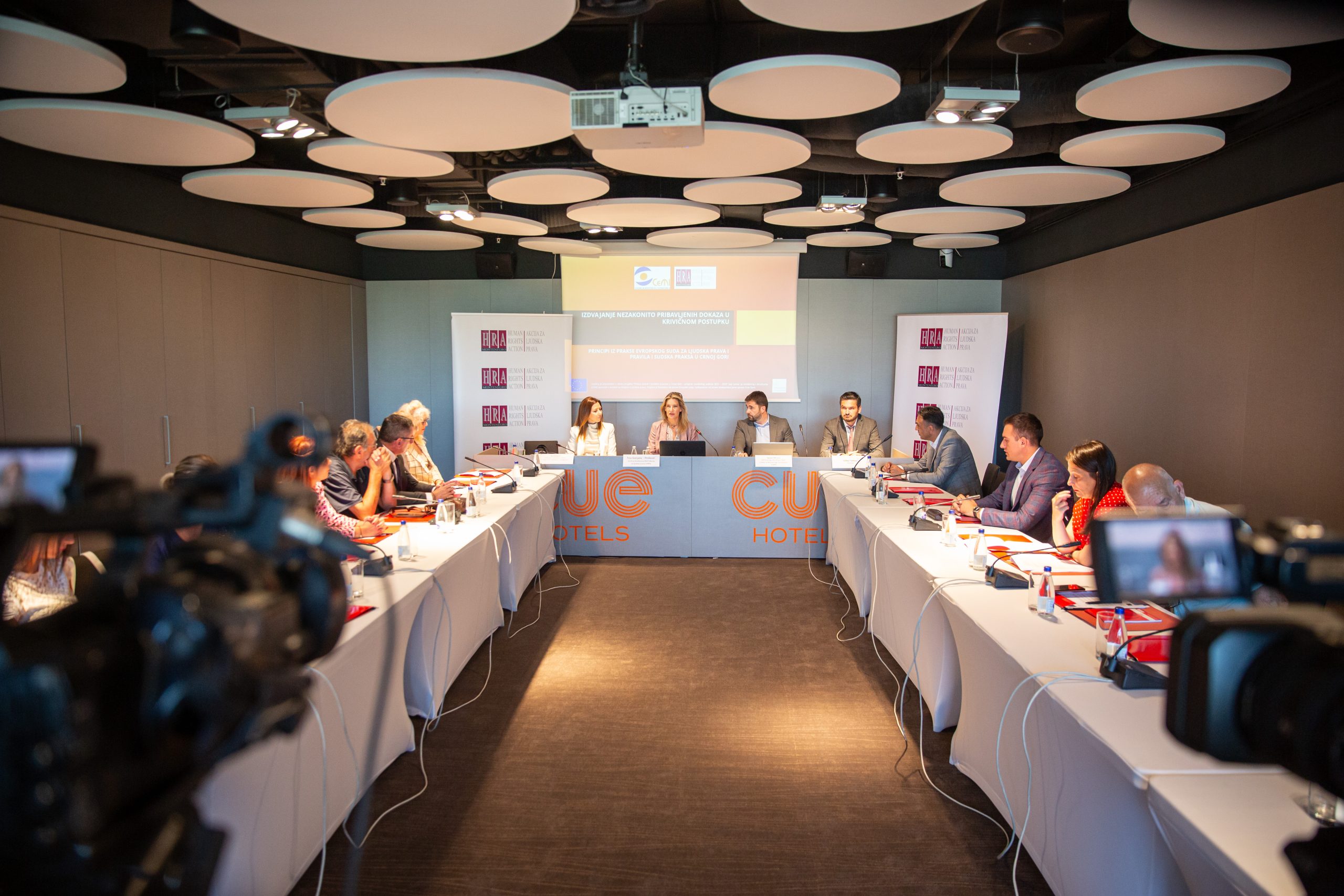
PRESENTATION OF THE HRA REPORT ON THE EXCLUSION OF ILLEGALLY OBTAINED EVIDENCE IN CRIMINAL PROCEEDINGS: The practice of the Court in Strasbourg should not be used to justify violation of domestic procedural rules
12/07/2023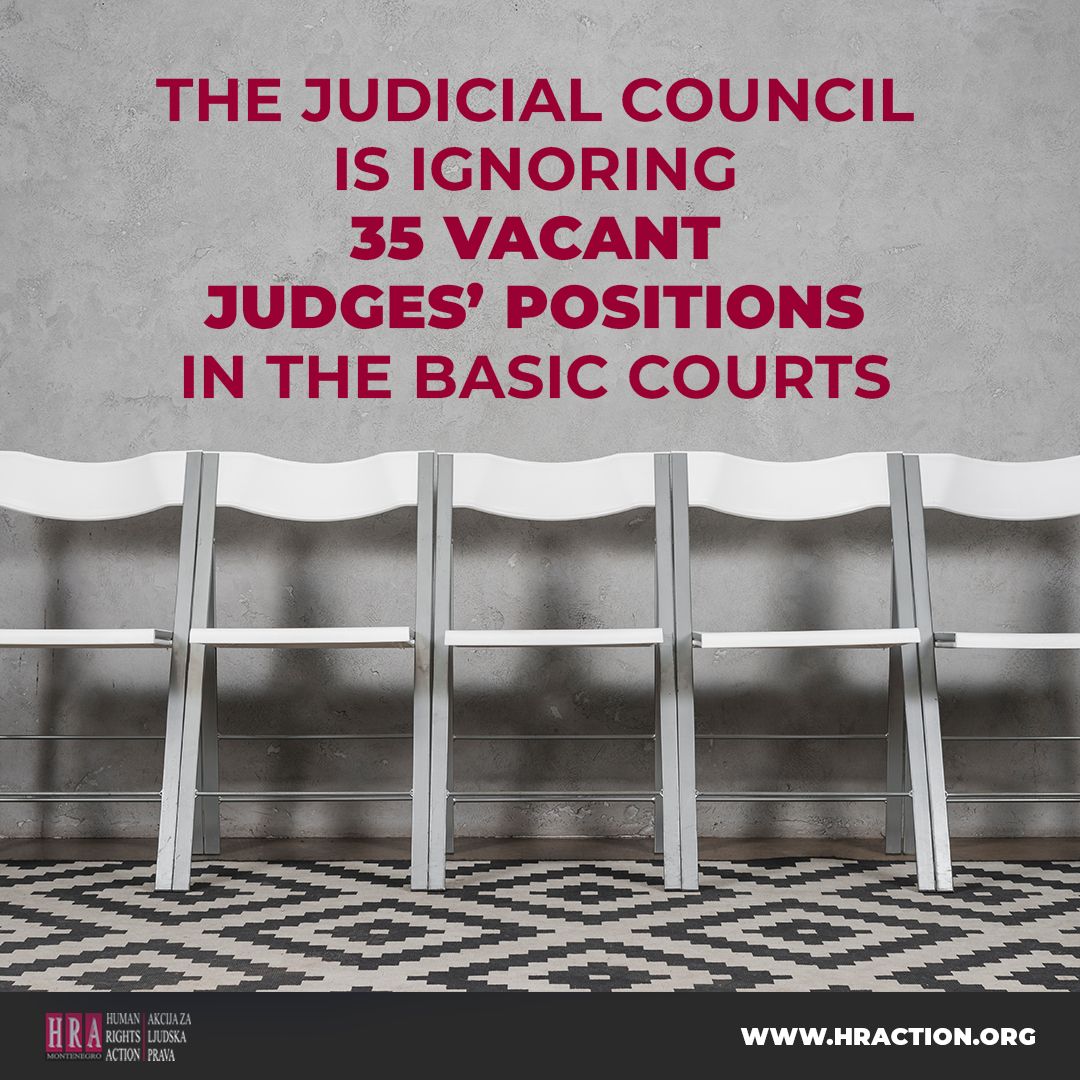
THE JUDICIAL COUNCIL IS IGNORING 35 VACANT JUDGES’ POSITIONS IN THE BASIC COURTS
25/07/2023NEW VERDICT AWARDING COMPENSATION FOR DAMAGES DUE TO INEFFECTIVE INVESTIGATION OF THE POLICE TORTURE REPORT FROM OCTOBER 2015
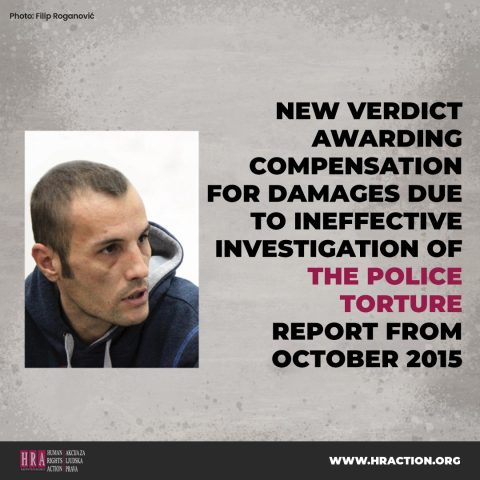
Judge of the Basic Court in Podgorica, Nina Ojdanić, confirmed that the state’s ineffective investigation of police ill-treatment that had taken place in Podgorica on 9 October 2015 had violated Braslav Borozan’s personal right – the procedural aspect of the prohibition of torture, inhuman or degrading treatment or punishment from Article 3 of the European Convention on Human Rights and Article 28 of the Constitution of Montenegro.
Borozan was awarded compensation for non-material damages in the amount of EUR 5,000, plus the costs of the proceedings. He was represented by attorney Dalibor Tomović as part of the Human Rights Action (HRA) programme for the provision of free legal aid to victims of torture, financially supported by the United Nations Voluntary Fund for Victims of Torture (UNVFVT).
The state was represented by Aleksandar Veljović, Deputy Protector of Property and Legal Interests of Montenegro.
It was a first-instance judgment, so it is not yet final.
On 12 October 2015, Borozan filed a criminal report against four police officers for the criminal offence of ill-treatment from Article 166a, paragraph 2, in connection with paragraph 1 of the Criminal Code of Montenegro. As confirmed by a forensic medical expert, he had been subjected to torture by police officers in the premises of Security Centre of Podgorica on 9 October 2015.
More than 35 months (almost three years) after the submission of the criminal report, the Basic State Prosecutor’s Office in Podgorica still had not decided on it, even though it involved a shortened procedure in which a decision upon the report must be made within one month (Article 256a, paragraph 3 of the Criminal Procedure Code of Montenegro).
In 2018, Borozan filed a constitutional appeal U-III no. 1760/18 due to the ineffective investigation and the torture he suffered.
The Constitutional Court accepted the appeal in 2021 and found that the Basic State Prosecutor’s Office (BSPO) in Podgorica had failed to fulfil its obligation to protect the procedural aspect of the right to the prohibition of torture and to act urgently on the report against police officers, since the state prosecutor (Vukas Radonjić) had taken three years and six months to decide on the report (from 12 October 2015 to 19 April 2019). The statutory deadline for the state prosecutor’s office to make a decision in such a case is one month.
On the other hand, the Council for the Civilian Control of Police Work had concluded back in December 2015 that 7 police officers had exceeded their police powers in the case of Borozan.
According to the prosecutor, the police officers who committed criminal acts have not been identified to this day (more than 7 years after the fact), and the case has fallen under the statute of limitations.
Due to the fact that on 9 October 2015, while being arrested, Braslav Borozan caused injuries to police officers in the police station, the same prosecutor, Vukas Radonjić, filed an indictment against Borozan within 20 days (on 30 October 2015) for the criminal offence of assault on an official performing an official activity from Article 376, paragraph 3 of the Criminal Code of Montenegro. The trial, which began on 7 December 2015, ended in the first instance on 10 February 2020, and Borozan was sentenced to 8 months in prison.
The same acting prosecutor, Radonjić, represented the plaintiff as the injured party in the cases Ktn. no. 587/15 (Kt. no. 293/19), while at the same time prosecuting him as a defendant in the case K. no. 723/15, concerning the same event. The simultaneous handling of both cases is contrary to the standard of the European Court of Human Rights, according to which the state prosecutor acting on the report filed against the ill-treater of the injured person may not simultaneously be in charge of a case in which the same person is suspected of a criminal offence related to allegations of ill-treatment, such as assault on an official (Boicenco v. Moldova, application no. 41088/05, 2006; Timofejevi v. Latvia, application no. 45393/04, 2012).
The investigation into the report of the ill-treatment of Borozan was also accompanied by the Police Administration’s apparent attempt to avoid submitting a video footage from the room where police officers used force against him. Initially, the police said that the cameras were not working. Later, they said that they were, but that the footage was recorded over. On the other hand, the state prosecutor did not ensure that video surveillance footage from the premises where Borozan was taken and interrogated be immediately handed over, but had rather obtained footage that did not cover the disputed area (the central corridor). The prosecution did not order that a digital evidence expert examine the MoI server so as to determine the cause of the absence of footage.
The state has the right to be compensated for damages that state prosecutors have caused to parties, either intentionally or as a result of gross negligence (Article 102 of the Law on the Public Prosecutor’s Office). The Human Rights Action believes that there will be no rule of law in Montenegro until state prosecutors and police officials responsible for ineffective investigations are held responsible for their negligent behaviour.




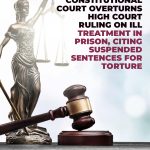

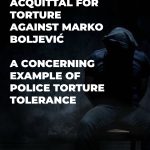
 English
English